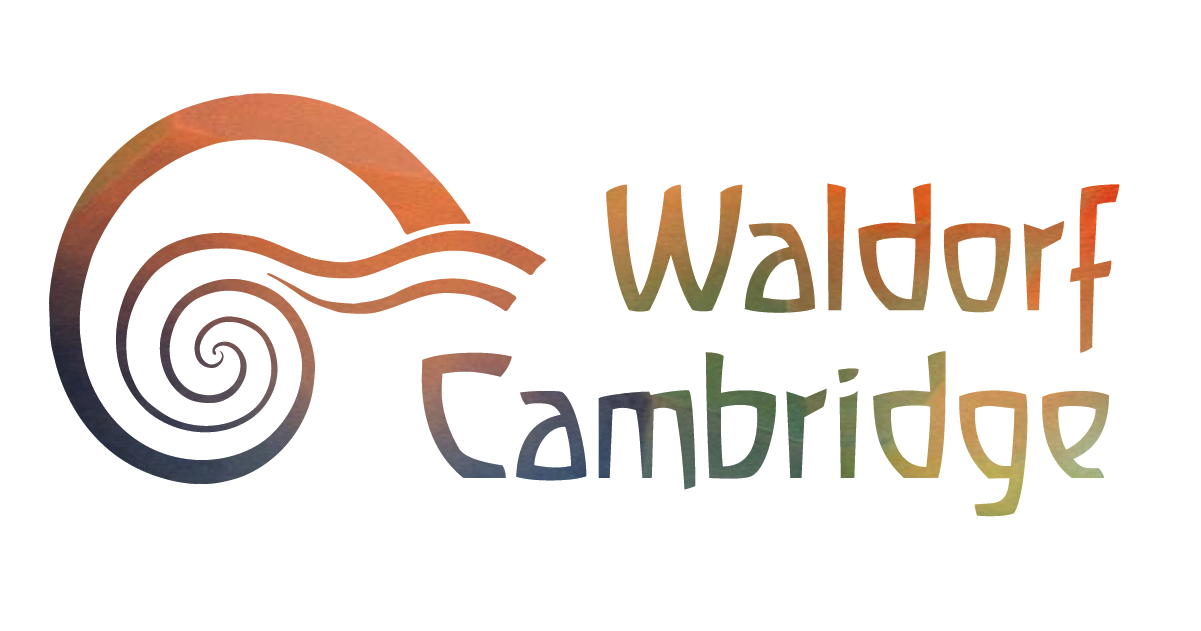Principles and History
Ethos and Aims
The Purpose of Education.
The aim of Waldorf Education is to equip children with the knowledge, skills and capacities they will need to flourish in a complex and changing world. From early years to upper school, experiences and learning are sequenced to nurture children's potential to adapt, think creatively, be resilient, courageous, self-aware and have the insight to understand and empathise with others.
Foundational to Waldorf education is Rudolf Steiner's philosophy that human beings are a complex interaction of body, mind and spirit and that the careful support of the development of each of these aspects of the growing child is what prepares them for life. Recognising and seeking to take care of the spiritual or inner life of children is what distinguishes Waldorf Education. In Waldorf terms, the "spiritual "or "soul" is not religious but the inner aspect of being human that is not material. For more information, see Anthroposophy in Waldorf Education.
Teachers also draw from a plethora of contemporary research and approaches to education, learning, psychology and understanding behaviour to inform their teaching. Waldorf UK facilitates this process with CPD opportunities on all aspects of teaching and understanding the learning and developmental needs of the children in our schools.
What makes us stand out from other schools?
At Waldorf Cambridge, we have a holistic approach to learning and education. What this means in practice, is that whilst we work out of the principles and ideas developed by Rudolf Steiner, we also pride ourselves on our ability to meet the needs of our children today, living in the 21st century.
Our teachers are constantly engaged in developing these ideas to suit the individual child. There is significant research and insight into pedagogy, (the method and practice of teaching). We use this word a lot in our school, as it keenly reflects our commitment to implementing best practice in the classroom, and to see what actually works in class.
Some of our pedagogy comes from outside the Steiner method. This way, we can ensure that we are consistently enhancing our teaching methods and style, to directly impact on children’s learning and well-being.
We work with multidisciplinary professionals, including educational psychologists and occupational therapists where required, to continually enhance our understanding of your child.
We also work out of fundamental principles and these are outlined below. These provide a learning framework for everything that happens in the life of our school and are also used as a benchmark for us to evaluate our effectiveness.
Ten fundamental principles:
- At Waldorf Cambridge, we understand that your child is unique. Understanding the developmental stages of childhood, our education is unhurried and absolutely age-appropriate.
- We believe that childhood is not a race and that our job is to fuel the flame of learning in your child, so that a love of learning is something that will stay with your child throughout his or her lifetime.
- Our curriculum is broad and deep, with a reverence for all of life and the interconnectedness of all things, including Nature, Society and the larger world outside of the classroom.
- We believe in minimal testing, but naturally monitor progress and assess where appropriate.
- Cultivating healthy and respectful relationships to each other, we value qualities such as honesty, kindness and care.
- Whilst our work has evolved out of the insights of Rudolf Steiner, we use these solely as a foundation to enhance our understanding of your child in the context of today’s world.
- We use the outdoors, song, music and art, alongside tried and tested, traditional teaching methodologies to educate and inspire your child.
- Education at Waldorf Cambridge is immersive, inspiring and creative in the truest sense, as children experience a hands-on and experiential approach to learning.
- We believe that when pupils leave our school, they should be confident and resilient, able to take on the inevitable challenges that life throws their way.
- We can confidently say that we educate children for a lifetime. We equip our young people with the practical, social, emotional and mental skills they need to succeed in life, have fulfilling relationships with others and be happy, whatever path they choose.
History
Cambridge Steiner School has developed through the work and vision of many people over the years; like most fledgling Waldorf schools, it did not open its doors overnight. A small parent and toddler group gradually grew from small gatherings in parents' living rooms in 1987, drawing in families through workshops and lectures, to open its first kindergarten in 1994.
The school has been blessed by its pioneering families who were able to see beyond the dim and cramped surroundings of our previous premises. They undertook many of the administrative roles, holding parent and toddler groups as volunteers, making crafts for our fairs and stalls and being the first friendly faces to greet new families. The school continues to be inspired by the vision of its earliest teachers who helped guide the school through its infancy. Together these teachers and families have left a legacy of school traditions that inspire new parents.
Now, twenty-five years on, the Cambridge Steiner School has successfully moved premises to Fulbourn where our primary school shares a building with four kindergartens and a parent and child group. In today's fragmented society, the parents of the Steiner school have found a community whose benefits extend beyond the education and wellbeing of their own children to include that of their entire family. The community of families is the caretaker of our school and assumes responsibility for its upkeep and management. The teachers, trustees and parents of the Cambridge Steiner School are striving to develop further in the school and the community.
